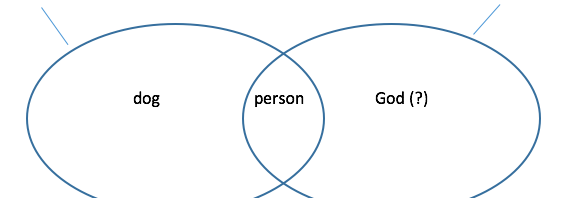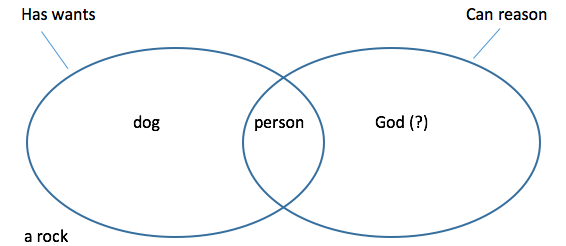- Facebook730
- Total 730
Anyone who works on civic education or grassroots civic engagement will sooner or later encounter critics who say, “The US is not a democracy–it is a republic” as if that were a profound objection to teaching or practicing democratic values. In a longer post, I analyzed the terms “democracy” and “republic” in the language of the Framers and subsequent authors. I argued that: (1) populist Framers like Jefferson used the word “republic” to mean what can also accurately be called a democracy, and (2) the original Constitution did include undemocratic elements, but they have been deliberately removed by the 15th, 17th, 19th, and 24th amendments to the Constitution. That means that although the Framers would call the United States a republic, it is now a democracy, at least in aspiration.
Here I would like to emphasize a related point. During the 20th century, almost all American political leaders asserted that the US was a democracy. Conservatives tended to be more sanguine about how much of a democracy we actually had. Left-liberals were the ones who argued that America was not authentically democratic because of persistent injustices. It is only in the last decade that it has become a talking-point for some conservatives that the US is (and ought to be) a republic and not a democracy.
I have quickly found one quotation from each GOP president since McKinley in which the president called the US a democracy. This was the result of 30 minutes of web searching; many more examples could be found:
[*It’s been noted that I accidentally omitted William Howard Taft, and it’s not easy to find a positive statement by him about democracy. He was, indeed, an opponent of the direct-democracy reforms of his era. So Taft may be an exception.]
- Teddy Roosevelt, “A Charter of Democracy” (1912): “I believe in pure democracy. With Lincoln, I hold that ‘this country, with its institutions, belongs to the people who inhabit it. Whenever they shall grow weary of the existing government, they can exercise their constitutional right of amending it.'”
- Warren Harding, Inauguration Address (1921): “Because we cherish ideals of justice and peace, because we appraise international comity and helpful relationship no less highly than any people of the world, we aspire to a high place in the moral leadership of civilization, and we hold a maintained America, the proven Republic, the unshaken temple of representative democracy, to be not only an inspiration and example, but the highest agency of strengthening good will and promoting accord on both continents.”
- Calvin Coolidge’s Address at the Celebration of the 150th Anniversary of the Declaration of Independence (1926) is probably the most interesting, because it is an explicit and rather scholarly argument that the Framers had created a democracy. “Placing every man on a plane where he acknowledged no superiors, where no one possessed any right to rule over him, he must inevitably choose his own rulers through a system of self-government. This was their theory of democracy. In those days such doctrines would scarcely have been permitted to flourish and spread in any other country. This was the purpose which the fathers cherished.” Coolidge quotes Thomas Jefferson saying that his “‘best ideas of democracy’ had been secured at church meetings.” Coolidge says that Jefferson was influenced by John Wise, who had written, “Democracy is Christ’s government in church and state.”
- Herbert Hoover, in a Challenge to Liberty (193o) argued that the New Deal had repudiated democracy, leaving “the Republican Party alone the guardian of the Ark of the Covenant with its charter of freedom.” He added, “You might think that reform and change to meet new conditions of life are discoveries of the New Deal. Free men have always applied reform. We have been reforming and changing ever since George Washington. Democracy is not static. It is a living force. Every new idea, every new invention offers opportunity for both good and evil.”
- President Eisenhower’s Farewell Address as president (1961): “We must never let the weight of this combination endanger our liberties or democratic processes. … We want democracy to survive for all generations to come, not to become the insolvent phantom of tomorrow.”
- Richard Nixon, State of the Union Address (1970): “In the majesty of this great Chamber we hear the echoes of America’s history, of debates that rocked the Union and those that repaired it, of the summons to war and the search for peace, of the uniting of the people, the building of a nation. Those echoes of history remind us of our roots and our strengths. They remind us also of that special genius of American democracy, which at one critical turning point after another has led us to spot the new road to the future and given us the wisdom and the courage to take it.”
- Ronald Reagan, Normandy, June 6, 1984: “You all knew that some things are worth dying for. One’s country is worth dying for, and democracy is worth dying for, because it’s the most deeply honorable form of government ever devised by man.”
- George H.W. Bush, Inaugural Address (1989): “We meet on democracy’s front porch. … Our children are watching in schools throughout our great land. And to them I say, Thank you for watching democracy’s big day. For democracy belongs to us all, and freedom is like a beautiful kite that can go higher and higher with the breeze. And to all I say, No matter what your circumstances or where you are, you are part of this day, you are part of the life of our great nation.”
- George W. Bush at the National Endowment for Democracy (2005) “The roots of our democracy can be traced to England, and to its Parliament — and so can the roots of this organization. … Working democracies always need time to develop — as did our own. We’ve taken a 200-year journey toward inclusion and justice — and this makes us patient and understanding as other nations are at different stages of this journey.”
For more than a century, both Democrats and Republicans vigorously claimed that the US was a democracy as well as a republic. It’s possible that the names of the two major parties have recently encouraged some people to view the words “republic” and “democracy” as partisan labels. That is both an etymological error and an unfortunate barrier to what used to be shared aspirations. I happen to be confident that the language of democracy will regain its consensus appeal for Americans, thus inspiring us to honor our democratic ideals. But we are sailing through a rough patch right now, and virtually no political word seems able to unite rather than divide.

 I am not going to blog this week because we are visiting colleges with someone who looked like this when I started blogging. I’ll be back on Feb 22.
I am not going to blog this week because we are visiting colleges with someone who looked like this when I started blogging. I’ll be back on Feb 22.
